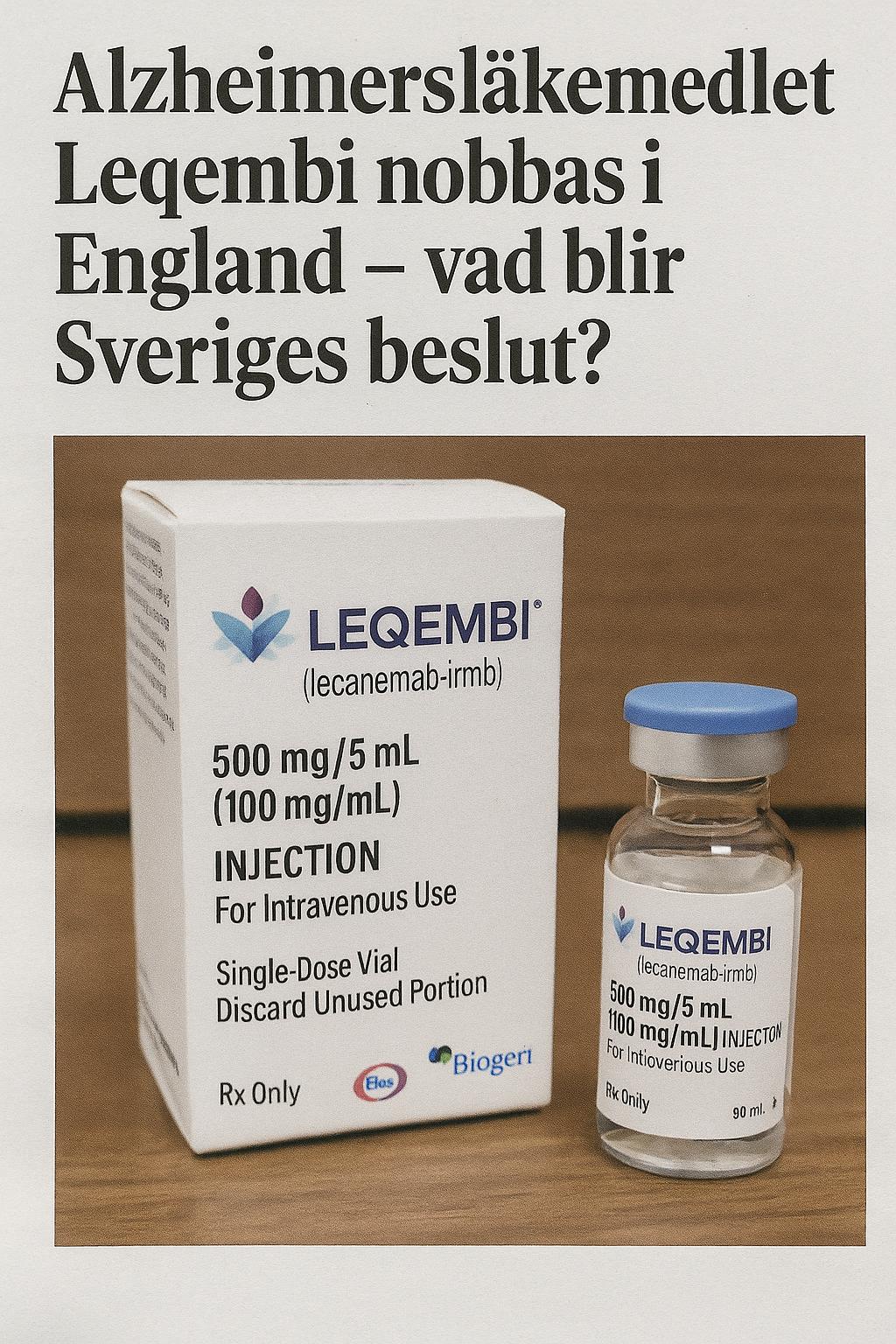When the United Kingdom officially rejected the Alzheimer’s drug Leqembi in June 2025, the move resonated far beyond its borders. Sweden, among other European countries, is now closely watching the aftershocks of that decision as it weighs its own approach to the same treatment.
Leqembi—developed by Japanese pharmaceutical company Eisai in conjunction with U.S. biotech giant Biogen—targets amyloid plaques in the brain. These plaques are believed to contribute significantly to the progression of Alzheimer’s disease. Clinical trials for Leqembi demonstrated a modest slowing of cognitive decline in patients with early-stage Alzheimer’s.
But while the promise sparked initial excitement, deeper scrutiny has revealed limitations that ultimately led the UK’s National Institute for Health and Care Excellence (NICE) to decide against recommending it for public funding.
Not Quite the Breakthrough Everyone Hoped
Several factors influenced the UK’s rejection of Leqembi:
- High cost of treatment per patient
- Intensive delivery method, including frequent IV infusions
- Need for multiple MRI scans to monitor brain changes
- Strain on healthcare professionals and specialized infrastructure
NICE’s Helen Knight noted that the minimal improvement in patient outcomes did not justify the treatment’s cost and logistical demands. Moreover, long-term effects remain unknown, given that clinical trials tracked patients over a relatively short period.
Simply put, for NICE, the cost-benefit ratio did not add up.
A Scandinavian Echo?
The ripples of NICE’s decision are being felt in Sweden, which has already approved Leqembi for sale via its Medical Products Agency. But regulatory approval is only the first step. Whether Swedish patients can access Leqembi through public healthcare is still under review.
The final say on reimbursement and accessibility lies with two authorities:
- Swedish Dental and Pharmaceutical Benefits Agency (TLV)
- New Therapies Council—responsible for national treatment recommendations
These agencies must assess whether the Swedish healthcare system can afford to integrate this complex treatment, especially considering the current strain on public hospitals and limited budgets.
Implementing Leqembi broadly would likely require:
- New infusion clinics
- Increased access to MRI machines
- Additional training for medical staff
All of which translates into significant investment—with uncertain return in terms of patient benefit.
Hope, Economics, and Hard Choices
For families affected by Alzheimer’s, even a slight delay in symptoms—increased memory retention, extended independence—can feel profound. But for national healthcare systems, emotional weight must be balanced with pragmatic economics.
Policy makers face tough questions:
- Does the treatment provide enough value to justify its cost?
- How many patients could actually benefit?
- What else could those resources be used for within the public health system?
Governments in Europe—Sweden included—must choose between early adoption with limited certainty or waiting for clearer, more compelling evidence.
Looking Ahead
With the UK setting a cautious precedent, the pressure is on Swedish regulators to choose—follow suit, or risk more ambitious integration of unproven therapies.
In the meantime, Leqembi represents a middle ground—scientifically exciting, but practically complicated. Further studies, new data, and possibly next-generation treatments could shift the calculus in years to come. But for now, the debate remains firmly in the realm of policy, finance, and long-term vision.
Final Thought
Alzheimer’s is a disease that erodes life slowly and devastatingly. Any progress, however small, feels precious. Yet as England’s analysis has underlined, hope alone doesn’t justify large-scale investment in uncertain therapies.
In countries like Sweden, where healthcare systems are built on balancing equity and cost, the final decision must consider more than medical promise—it must also weigh sustainability and fairness.
And so, the key question remains unanswered: Is it worth it?
That, for now, remains a matter of national debate—and worldwide interest.
